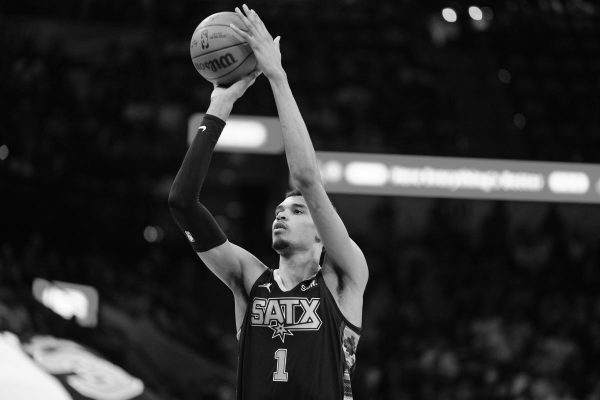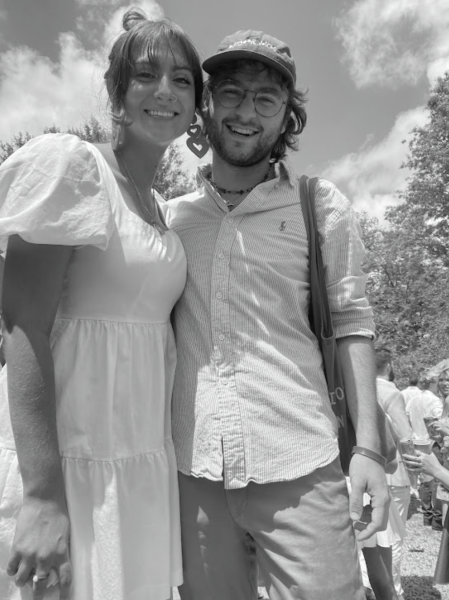Athletes Push For Greater Accountability Through PRSM Trainings
A workshop for student-athletes about sexual assault and harrassment prevention, titled Consent in Athletics was organized in April by the Preventing and Responding to Sexual Misconduct project. The program was created by student-athletes including College third-years V Dagnino, Anna Scott, and Kiki Widran and Louise Metz, OC ’21. The program was also constructed by the student organization Survivors Of Sexual Harm and Allies. Student-athletes are required to complete a National Collegiate Athletic Association consent training in addition to the two first-year workshops led by PRSM. However, many felt that the NCAA training did not accurately portray the unique challenges and situations that Oberlin student-athletes face regarding sexual assault and harassment prevention.
“Being that there are quite a number of athlete PRSM trainers, we all had previous conversations surrounding the training that were being offered for athletes in recent years,” wrote Dagnino in an email to the Review. “We all kind of agreed that these scenarios and topics being offered in these workshops didn’t cover important issues within the athletic community on campus. PRSM agreed that it would be a good idea if we launch and test-run an athletics workshop for Consent Month that could talk about topics that are more prevalent to Oberlin athletes.”
Scott emphasized that discussions about team culture are especially pertinent at Oberlin where the actions of one athlete can impact overall team culture and the perception of the athletic community by non-athletes.
“I think that athletes are certainly in a position of power on campus when participating in social events, and the types of ways positive or negative team culture can determine how teams are respected is really important to talk about,” wrote Scott in an email to the Review.
The session included various scenarios in which participants had the opportunity to discuss in small groups and then share with everyone. Topics included power dynamics between a captain dating another member of a team, the ostracisation of a non-athlete by a team, and navigating situations when a teammate’s pronouns are not being used correctly. Cultivating a positive environment across all sports at Oberlin was a motivator for many of the moderators of the athlete training.
“In regards to Oberlin Athletics, I feel as if we have yet to create a good culture among ALL OF US,” wrote Dagnino. “There are teams on campus that are considered to have ‘good reputations’ and others that have ‘bad reputations.’ We have to work towards being good humans on and off the field, because that creates a good culture … As Oberlin athletes, we all want to develop as young adults and become the best versions of ourselves. Sports throughout our lives have given us a platform to learn life skills, discipline, and respect.”
Over 90 student-athletes signed up for the training, and PRSM is planning to host more athlete-specific training in the future.
“I would love if PRSM could continue to have this workshop available during Consent Month as well as another one in the fall if possible,” wrote Metz in an email to the Review. “Additionally, I have been working with the Title IX Office and [Volleyball head coach] Erica Rau to rework this workshop as the mandatory training for all athletes next year. My biggest goal for these sessions is to teach teams and athletes to create positive change in their team cultures.”
Metz believes that this training was just the first step in changing the culture of Oberlin athletics for the better.
“Acknowledging a problem exists is the first step, followed by setting higher expectations for how to be a good teammate and representative of Oberlin athletics,” she wrote.
Although the turnout exceeded expectations, both the participants and the moderators noted that the training was dominated mostly by femme-presenting athletes. Metz noted that this trend goes beyond this specific workshop.
“This is a recurring conversation in all PRSM spaces, especially around hiring time,” she wrote. “Many people who are interested in this work are cis women or femme-presenting folks because they are so often the survivors of sexualized violence. Additionally, our society refuses to hold cis men accountable for their attitudes towards these conversations. Rather we allow them to believe they do not need to take part in this process as long as they don’t personally assault somebody.”
Scott added that it can be difficult to get people to attend voluntary trainings.
“Voluntary workshops are a challenge because they are, of course, voluntary,” they wrote. “Then on the other hand, mandatory trainings sometimes have negative connotations behind them and you end up getting people to show up that don’t even want to be there, which ends up being a waste of everyone’s time. As a whole, PRSM is working to develop new ideas on how to get greater turnout to these types of meetings and sessions.”
Wildran expressed disappointment with the lack of representation from men’s teams.
“There are certain men’s teams at Oberlin that people know to stay away from due to fear of being harmed, and I have to believe that these teams know about their reputations,” she wrote. “However, despite knowing this, it is clear that they maybe do not care or do not see a problem with the ways they have harmed others, and have no intention of growing or correcting their behavior. This was probably the most demoralizing part of doing this workshop, because despite the best intentions of those of us who created or attended, we were not genuinely reaching the audience that we were trying to target.”
Moderators of Consent in Athletics are in the process of finding ways to attract more athletes, particularly those on men’s teams.
“I always say that it is super telling when certain people consistently show up to events such as the ones that PRSM puts on: It shows that those individuals are actively there to learn and grow and be better,” wrote Scott. “It is really unfortunate that we have consistently had a smaller turnout from predominantly men’s team members, and we are actively adapting the ways that we think about workshops going forward, and what ways we can engage more folks.”
Continued encouragement from coaching and administrative staff will also be crucial to getting athletes from predominantly male teams to attend. Scott believes that until there is administrative support, it will be difficult to get certain teams to attend. Some teams could not attend due to game schedules, but PRSM offered to host make-up sessions.
“I really hope that the athletics administrative and coaching staff can get more involved with this process of educating and working with athletes on these topics, because without their enthusiasm and active and persistent support, athletes will also not take this seriously,” wrote Scott.
Though Oberlin College athletics has made great strides in inclusivity and support for student-athletes of all backgrounds, the work is far from done.
“We want these workshops to serve as a jumping off point, where teams can then take what they learned and discussed back into their team settings in order to create a better culture surrounding harm throughout all of Oberlin athletics,” wrote Widran.
Dagnino challenges student-athletes to reflect and learn more about sexual assault and harassment prevention, not only for the betterment of themselves, but also for the Oberlin community as a whole.
“We have to continue to challenge ourselves and be better,” Dagnino said. “Not only for the sake of our own team cultures but for the sake of the Oberlin community, we have to be better.”



